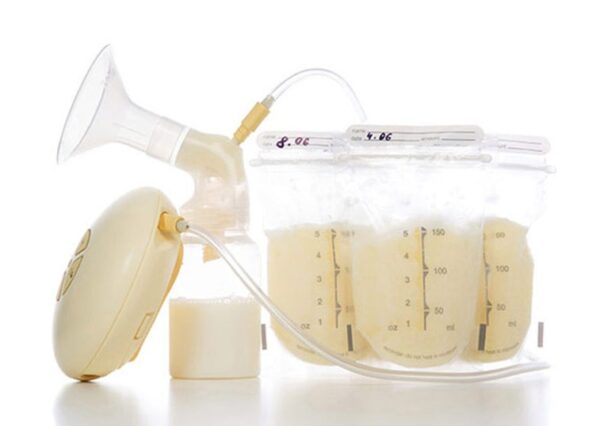3 min read
Are Food Sensitivities Keeping You from Reaching Your Fitness Goals?
 Stark
:
Aug 15, 2016 2:26:19 PM
Stark
:
Aug 15, 2016 2:26:19 PM
There’s been a lot of media hype over the last several years about gluten intolerance, dairy sensitivity, and food allergies, but what do these terms mean, and could they be affecting your ability to lose fat and gain muscle? As it turns out, food sensitivities are not a figment of your imagination. They’re very real and can lead to some serious changes in your body composition and overall health. If you feel that you’ve done everything right in terms of diet and exercise, yet you’re not seeing the results you want, a hidden food sensitivity could be to blame.
Food Sensitivity vs. Food Allergy
If you peruse the internet on the subject, you may come across the terms “food sensitivity” and “food allergy” used interchangeably. But while the differences between the two may seem negligible, the way you need to approach each one can be vastly different.
A food sensitivity, also called an intolerance, is mediated by immunoglobulin G (IgG), whereas a food allergy involves immunoglobulin E (IgE), both of which operate within your immune system. On the surface, this might sound like a mere nuance, but in truth, this creates two distinct conditions that present themselves quite differently.
The signs of a food allergy, or IgE response, include:
- Immediate onset of symptoms
- Heat
- Swelling
- Redness
The signs of a food sensitivity, or IgG response, include:
- Delayed onset, up to a few days
- Gas
- Bloating
- Acne
- Fatigue
- Irritability
The Long-Term Effects of an Unrecognized Food Sensitivity
Often, the biggest challenge with a food sensitivity is that due to its delayed onset, it can be difficult to determine the root cause of your symptoms. Thus, many people may have a food intolerance that they just haven’t identified yet, and it could be placing a toll on their body.
Long-term inflammation caused by repeated gas, bloating and poor digestive health due to a food sensitivity can throw off your body’s hormonal balance. Hormonal imbalance can lead to thyroid problems and an overproduction of the stress hormone cortisol. Both of these hormone-related health concerns may interfere with your ability to lose fat, even when you think you’re eating all the right things. In fact, excess cortisol can even alter the way your body stores fat, which will tend to accumulate around the midsection when you’re under chronic stress.
Strategies to Try
So how do you determine whether or not a food sensitivity is keeping you from reaching your fitness goals? Your IgG and IgE levels can be tested, but these results aren’t always the most accurate indication of what’s actually going on in your system. So before springing for a test, a good first step can be to try one or both of these dietary strategies:
- Elimination diet. If you have no idea which foods might be causing your symptoms, start by choosing the seven most common foods that are known to be allergens and cut them from your diet for 30 days. These foods include gluten, dairy, eggs, nuts, beans, beef, and corn.
After this 30-day period, begin reintroducing each food slowly, one at a time and monitor how you feel over the next few days. If you begin to notice your symptoms returning, you may have found the culprit.
- Rotating proteins. Unlike food allergies, which can be life-threatening if they’re severe enough, having a food sensitivity doesn’t necessarily mean that you can never eat that food again. Instead, it simply means that you may need to eat that particular food less frequently than you currently do. That’s why rotating the proteins that you’re eating can be another good strategy to try to keep inflammation in check.
Typically, this is done using a four-day rotation method. Take different food families (beef vs. chicken, for example) and eat the first group on Day 1, but then avoid eating it again until Day 5. This can lower your body’s exposure to the antigens that cause food sensitivities, thus minimizing the exacerbation of the symptoms associated with that food family.
Benefits
If you do have a hidden food intolerance that’s hindering your body’s ability to function properly, you will likely notice some significant health benefits once you’ve identified the problem and begun to correct it. After about three weeks of eliminating or cutting back on the suspected sensitivity, you should notice many, if not all, of these benefits:
- Increased energy
- Improved skin health
- Improved mood
- Better sleep
- Clearer thinking
- Fat loss
The Bottom Line
If you really want to see maximum results, your diet and nutrition strategy needs to be so much more than simple calorie counting. Each food that you put into your body is either helping you or hurting you, and it’s up to you to take the reins and steer your body to perform at its absolute best. By providing it with the right nutrients, you can optimize your body, your health, and your life.
3 Reasons Why You May Be Struggling to Lose Weight
Let’s get the obvious out of the way first – you should eat less and to around 80% satiety.

Your Guide to IV Therapy: How It Works and When to Use It
Although IV therapy isn’t a new concept--it’s been around for decades--there is a growing interest in its potential health benefits. The idea behind...


.png?width=70&height=70&name=Stark_LogoMark%20(1).png)
